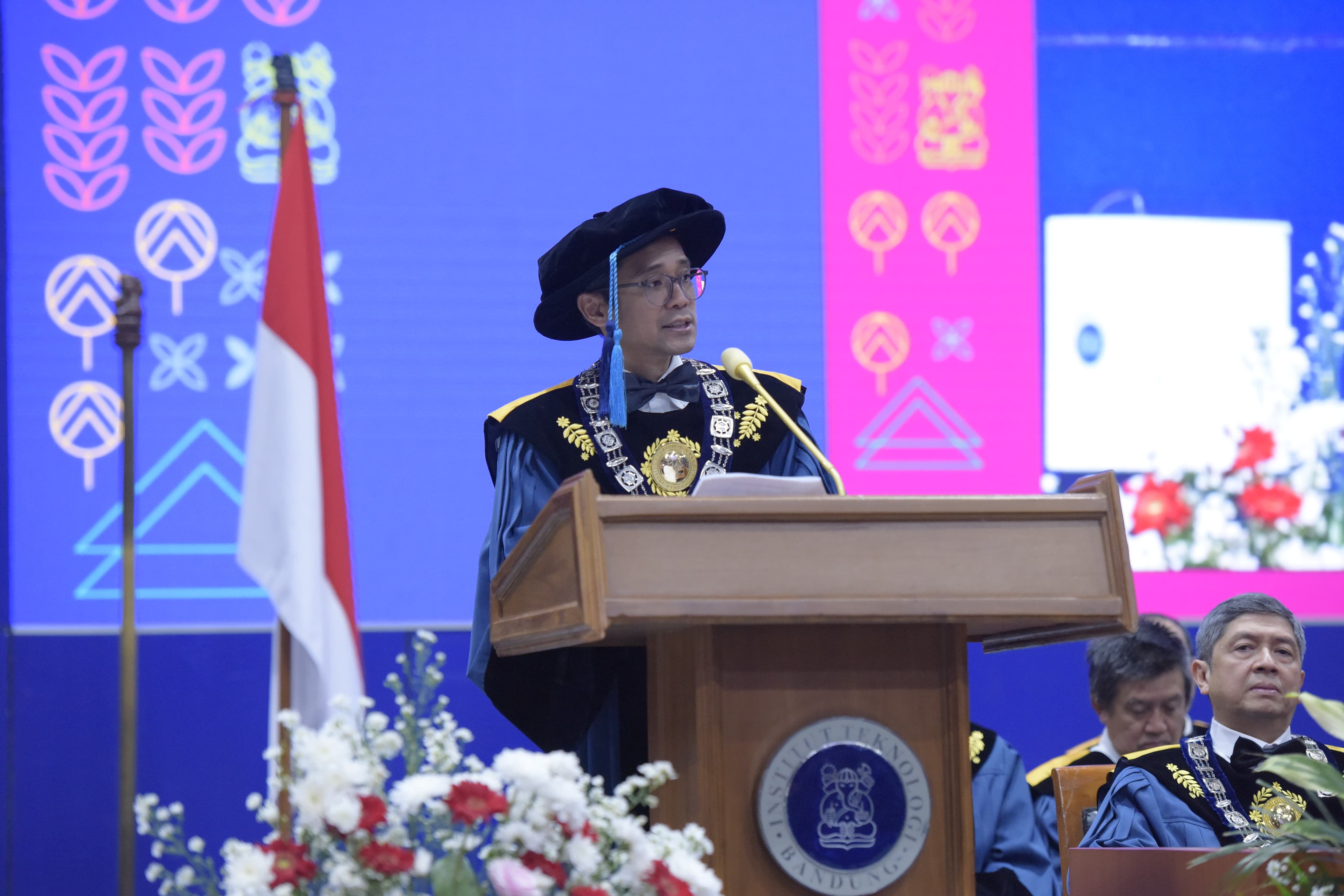The Inspirational Works of ITB Alumni, Singgih Susilo in Promoting the Potential of Wood and Bamboo
By Adi Permana
Editor Adi Permana

BANDUNG, itb.id— Attaining the chance to pursue further studies in ITB is an occasion to be grateful of. A form of gratitude can be learned earnestly in order to create real contribution for the local community.
That is the mindset that Singgih Susilo portrayed as an alumni of ITB Design Product (’86) whose hands created many inspirational works. He is the first student from the village of Tumanggung to pursue higher education in ITB.
He believed that the community around him must receive the merits of knowledge that he learned during his time in ITB. At the very least, he created three innovative works in the form of Magno, Spedagi, and Papringan Market. All of his works are based on the spirit of utilizing the resources around him.
Magno
No one expected that the final thesis of a student, ‘Magno’, would achieve global reputation — Magno began as a wooden radio product. The word means ‘to magnify’, referring to a magnifying glass that spots the people and resources native around him.
Its production process is not without complexities. The design was only recently realized in 2005, due to enduring issues with an electronic radio kit vendor. In the end, Singgih’s dedication manifested as the Magno radio prototype, which garnered attention from the Panasonic Gobel Group to the President Joko Widodo. At the moment, the product has breached the international market with the recent publication by a Japanese professor, impressed by the eye-catching product.
Magno was created scrupulously, combining aesthetics with high-quality materials. Magno is not a mere radio, it is a symbol containing deep philosophy. Magno represented concerns for the environment. Since 2008, Singgih has distributed 1000 trees every year to the villagers in order to increase tree population with a goal of 15 hectares of forest. Meanwhile, production has only required 0.5 hectares since its first operation.
The design and message delivered by Magno successfully won various awards, including Japan Good Design Award G-Mark 2008, London Design Museum’s Brit Insurance Design Awards 2009, and many more.
Spedagi
Spedagi is a bicycle product created from bamboo frames. Bamboo was chosen as it is a light yet strong material. Its strength was tested in a Japanese laboratory as well as endured through a long Aceh-Denpasar test ride. Bamboo also has a great longevity, thus it is a message that each person possesses the moral obligation to preserve nature and feel its connections.
Spedagi is also the fruit of his village. From the abundance of bamboo to the people behind its creation, Spedagi is an evidence of locality that breathes originality. Not unlike a magnet that attracts the eyes, many people travelled far to its manufacturing site. Uniquely, Spedagi is not an exported product as a form of non-involvement in producing gas emission from plane flights.
President Joko Widodo used the product during the Australian Prime Minister, Anthony Albanese’s welcoming, to stroll around the Bogor Botanical Garden a few months ago. At the international stage, Spedagi achieved the Gold Award predicate in the Tokyo Good Design Award 2018 as an acknowledgement of its globally influential design.
Papringan Market
His next work being immaterial, is a creative economy traditional market surrounded by seas of bamboo. The word papringan stems from the Javanese for bamboo. Singgih’s apprehension to a pile of rubbish surrounded by the bamboos that he saw during a cycling session motivated the creation of this marketplace,
His next step was conception of the project with his local colleague through door-to-door survey. His aim was to draw an illustration of a Papringan Market that the village community will cherish. The locals’ assembled their potential and participated in contributing to the project through selling culinary, field harvests, and traditional crafts in the market.
Through the involvement of various parties, Papringan Market developed national popularity. At first, the market’s prospect was viewed in pessimism due to its distance from urbanity. However, with the power of social media, Singgih’s initiatives caught the attention of many people who took interest in visiting. A quirk of this market would be its cashless transaction system. Instead, visitors are given small bamboo chips called ‘pring’. Pring is the sole currency used in the market, which customers can buy each for Rp2,000 and exchange for the many products sold at Papringan Market.
Wholeheartedly Rural Origins
The works that Singgih created evidently marked real achievements. Singgih elevated wood and bamboo potentials from his village into meaning-rich pieces. He has proven that developing one’s own community is never less valuable than other professions. He hoped that concerns and attitude towards improving local communities will remain heeded by the current generation of students.
Reporter: Lukman Ali (Mechanical Engineering, 2020)
Translator: Firzana Aisya (Bioengineering, 2021)

.jpg)
.jpg)
.jpg)
.jpg)
.jpg)


